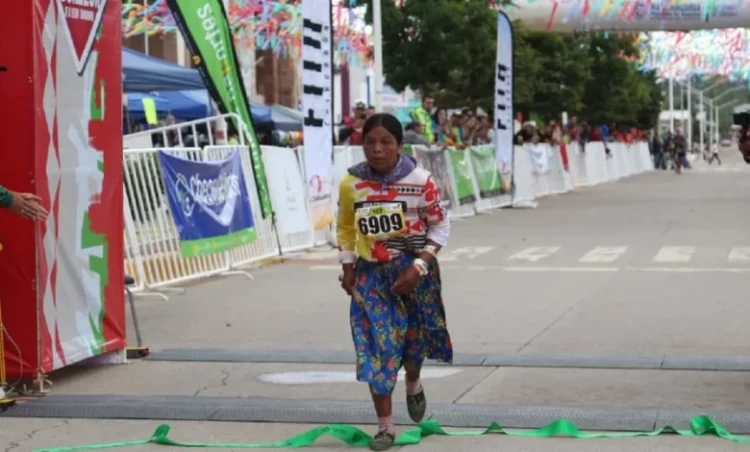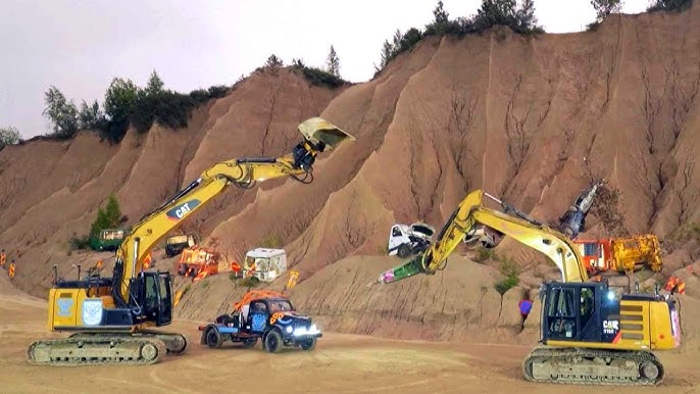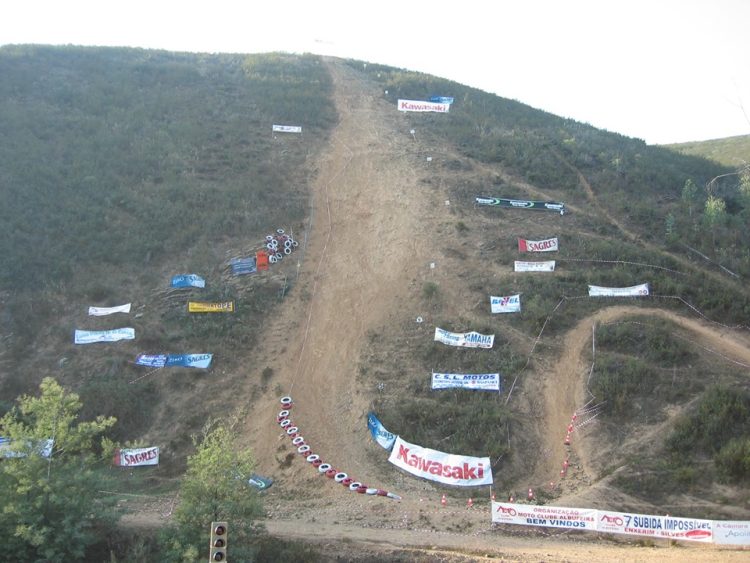For the past 59 years, the residents of Sweetwater, Texas, have been coming together during the second weekend of March to celebrate the ‘World’s Largest Rattlesnake Roundup’, a four-day event that features the beheading and skinning of thousands of rattlesnakes in front of a live audience.
Annual rattlesnake roundups are common in several areas of the rural Midwest and Southern United States, but the event at Sweetwater is considered by far the largest of them all. Launched in 1958 by the Junior Chamber of Commerce (Jaycees), it used to be the most effective way to control the region’s heavy snake population responsible for the death of cattle and humans alike.
And while the festival’s original premise might not be relevant anymore, the event still manages to draw up to 30,000 visitors each year, including out-of-state snake hunting teams and tourists from other countries. Just last year , a whopping 3,780 pounds – that’s tens of thousands – of rattlesnake were netted and thrown live into a pit, from where they were taken out and killed, one at a time.

Photo: Horatio3K
According to a report in the Midland Reporter-Telegram, the snake pit last year was like “a spaghetti of writhing angry reptiles” that gave off a “strange dense smell with an evil vomit-like edge to it.” It went on to describe how “denim-clad Jaycees lob off their heads, strip their skin, and disembowel their gizzards. The snake’s tiny hearts are set aside into a gory pile, each one still beating out its own rhythm – a hundred little pebble-sized hearts still twitching with life.” There are plenty of other snake-themed events at the festival, like snakeskin sales, food stalls peddling fried snake meat, and even a Miss Snake Charmer beauty pageant.
Unsurprisingly, rattlesnake roundups have come under severe criticism in recent times for the level of brutality meted out towards snakes. Most experts even believe that the overpopulation of snakes is a myth, propagated in a bid to keep the festivals going. “Promoted as folksy, family-friendly fun, these events foster disrespect for native wildlife and the natural world, and the result is an unsustainable and dangerous predicament for iconic and uniquely American species,” Melissa Amarello, of Advocates of Snake Preservation, wrote for National Geographic Voices.

Photo: Kimberly Vardeman
She goes on to explain how these festivals rake in huge profits for snake collectors – professional hunters who primarily target Western and Eastern diamondback rattlesnakes. They are awarded with instant cash prizes that increase in proportion with the size and number of snakes brought in. So these hunters forcibly remove snakes by the thousands from their natural habitats, because they aren’t bound by ‘take’ limits as in other game hunting activities.
The actual hunting is apparently done well ahead of the event, by pouring gasoline into the snakes’ winter dens, polluting the surrounding land and water. The snakes are forced to leave their pits, and the hunters grab and store them for months before the festival. The snakes are often crowded together in a confined space without food or water, and by the time they arrive at the roundup many of them are bleeding, dying, or already dead.
“Events like the the rattlesnake roundup in Sweetwater happening this weekend are a perfect example of how fear of snakes is used in a very bad way,” Amarello said, speaking to Everything Lubbock on Saturday. “In some ways the rattlesnake roundup is a type of wildlife management. The round ups claim they are doing this to keep the snakes from being overpopulated, even though there is no science that says they are overpopulated, it’s just not the way science based wildlife management is done. And so that’s why we would like to see it stopped.”
Other animal welfare groups are also trying to raise awareness about the cruelty involved in roundup events, and lobbying for reforms in the way snakes are hunted. “There’s not much rule on hunting the rattlesnakes,” game warden Roy Johnson explained. “There’s some legislation going on right now that they’re looking to try to prevent using the gasoline.”

Photo: Kimberly Vardeman
But snake hunters are refuting the statements of activists, strongly believing that their actions ensure the safety of local residents, pets, and livestock. “I think they’re wrong,” said Frizell, a hunter. “They just need to be out there in the middle of it to know what’s going on.”
Their claims are not backed by data, however. According to Amarello, “Fewer than five deaths in the U.S. each year can be attributed to snakebite, including people who refuse treatment and those bitten by their own exotic pet snakes. Interestingly, the USDA’s Cattle Death Loss report has logged zero cattle deaths from snakes in more than two decades, and ranchers report that snakes are not a threat to livestock, who usually recover from snakebites, even without treatment.” Studies also suggest that roundups do not do actually have any effect on local snake populations.
At the end of the day it all boils down to profits, seeing as how the Sweetwater festival pumps huge sums of money – amounting to millions of dollars – into the local economy. The Jaycees apparently use this money to fund community projects like free Thanksgiving meals. But the festival might not be around for much longer if the Texas Parks and Wildlife Department ends up banning the current gasoline hunting method. “It would be a devastating blow for us,” admitted David Sager, a snake handler and member of the Jaycees. “The rattlesnake roundup is our ways and means.”
Most supporters of rattlesnake roundups always use population control as their main argument and even though hard data doesn’t support their claims, I can understand that they actually believe they are doing the community a favor. But do you really have to make a gory spectacle out of decapitating, skinning and cooking the snakes?












